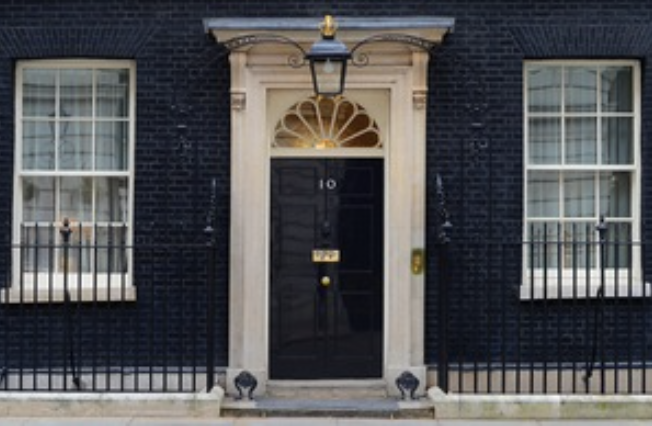Prime Minister Boris Johnson has set out an ambitious ten-point plan to combat climate change and create tens of thousands of new jobs.
Ahead of the COP26 climate summit in Glasgow next year, the Prime Minister has pledged £12 billion of government investment to create and support up to 250,000 green jobs in the UK and drive three times as much private sector investment by 2030.
Johnson said that despite the Covid-19 pandemic, the government had not “lost sight” of its climate plans.
He said: “My ten point plan will create, support and protect hundreds of thousands of green jobs, whilst making strides towards net zero by 2050.
“Our green industrial revolution will be powered by the wind turbines of Scotland and the North East, propelled by the electric vehicles made in the Midlands and advanced by the latest technologies developed in Wales, so we can look ahead to a more prosperous, greener future.”
The Prime Minister laid out the 10 point plan in this way:
1. Offshore wind: Producing enough offshore wind to power every home, quadrupling how much we produce to 40GW by 2030, supporting up to 60,000 jobs.
2. Hydrogen: Working with industry aiming to generate 5GW of low carbon hydrogen production capacity by 2030 for industry, transport, power and homes, and aiming to develop the first town heated entirely by hydrogen by the end of the decade.
3. Nuclear: Advancing nuclear as a clean energy source, across large scale nuclear and developing the next generation of small and advanced reactors, which could support 10,000 jobs.
4. Electric vehicles: Backing our world-leading car manufacturing bases including in the West Midlands, North East and North Wales to accelerate the transition to electric vehicles, and transforming our national infrastructure to better support electric vehicles.
5. Public transport, cycling and walking: Making cycling and walking more attractive ways to travel and investing in zero-emission public transport of the future.
6. Jet Zero and greener maritime: Supporting difficult-to-decarbonise industries to become greener through research projects for zero-emission planes and ships.
7. Homes and public buildings: Making our homes, schools and hospitals greener, warmer and more energy efficient, whilst creating 50,000 jobs by 2030, and a target to install 600,000 heat pumps every year by 2028.
8. Carbon capture: Becoming a world-leader in technology to capture and store harmful emissions away from the atmosphere, with a target to remove 10MT of carbon dioxide by 2030, equivalent to all emissions of the industrial Humber today.
9. Nature: Protecting and restoring our natural environment, planting 30,000 hectares of trees every year, whilst creating and retaining thousands of jobs.
10. Innovation and finance: Developing the cutting-edge technologies needed to reach these new energy ambitions and make the City of London the global centre of green finance
To deliver on his plan, the Prime Minister has pledged an extra £200 million of new funding to create two carbon capture clusters over the next five years, with another two set to be created by 2030.
In addition, the government will invest up to £500 million into hydrogen, with £240 million of this amount to go towards new hydrogen production facilities, while £525 million will be used to develop large and smaller-scale nuclear plants.
The Prime Minister also set electric vehicles in his sight, with the UK now on course to end the sale of new petrol and diesel cars and vans by 2030. Boris Johnson has committed £1.3 billion to accelerating the rollout of charge-points for electric vehicles across England. Meanwhile, £582 million will be earmarked for grants for those buying zero or ultra-low emission vehicles and nearly £500 million will be spent on the development and mass-scale production of electric vehicle batteries over the next four years. This will help to protect and create jobs in the Midlands, North East and North Wales.
Furthermore, £1 billion worth of investment will be used in 2021 to make new and existing homes and public buildings more efficient, extending the Green Homes Grant voucher scheme by a year and making public sector buildings greener.
Johnson said his plan “marks the beginning of the UK’s path to net zero” with further plans to reduce emissions expected next year. He will host a roundtable with green investors to set out his plan and incentivise greater private sector investment.
Gemma Woodward, director of responsible investment, Quilter Cheviot, said the plan marks a new era in government policy.
“Clean energy is the order of the day, and the Prime Minister is seeking to turn the UK into a green energy superpower. The Prime Minister has made it clear that the City of London will act as the engine room for this transition by channelling finance to clean energy projects.
“Both the UK and the EU have now set out their stalls for achieving net zero by 2050. Earlier this year, the EU launched their ‘European Green Deal’, which is a €100bn plan to transition their entire bloc to a clean, circular economy through industry innovation and environmentally friendly policies.
“For investors, all roads lead towards net zero by 2050, and these shifts in government and regulatory policy should act as a tailwind for companies and sectors that serve the ‘new economy’. Investors need to keep up, and look to the future by considering sectors such as renewable energy infrastructure that will support the UK and EU’s transition ambition.”
Sophie Lawrence, senior ethical, sustainable and impact researcher, Rathbone Greenbank Investments, added: “We welcome the Prime Minister’s announcement. As sustainable investors, who invest in long-term sustainable development themes on behalf of our clients, we also share his vision to turn the UK into the world’s number one centre for green technology and finance.
“This announcement is a promising starting point, but there is a lot more work to do to put the UK economy on a credible pathway for net zero emissions. The hard work starts now, to ensure the plans are underpinned by a clear roadmap for delivery and the necessary public and private investment to deliver them.”
Douglas Grant, director of Conister, said there are “significant opportunities” for the SME sector to capitalise on this transition, adding, “while government funding will be important, access to credit will be critical for entrepreneurs and businesses to take advantage of these new opportunities as well as to help them adapt and change their business models. The specialist lender segment will be critical to providing that support alongside government funding.
“We are already seeing signs of the SME segment pivoting towards the green economy, with Covid-19 serving as an accelerator.”
Michael Bonte-Freidheim, founding partner & Group CEO, NextEnergy Capital comments: “The UK’s 2050 net zero target is one of the most ambitious in the world and the Government’s 10 Point Plan to achieve a green industrial revolution shows real commitment to drive towards this goal. We welcome this initiative and look forward to seeing the detail within the white paper to help crystallise and stabilise the Government’s view of the routemap to net zero.
“The UK is at the forefront of creating a greener and more sustainable world, and one that NextEnergy Capital and the funds it manages will have a significant hand in helping to achieve.”



































